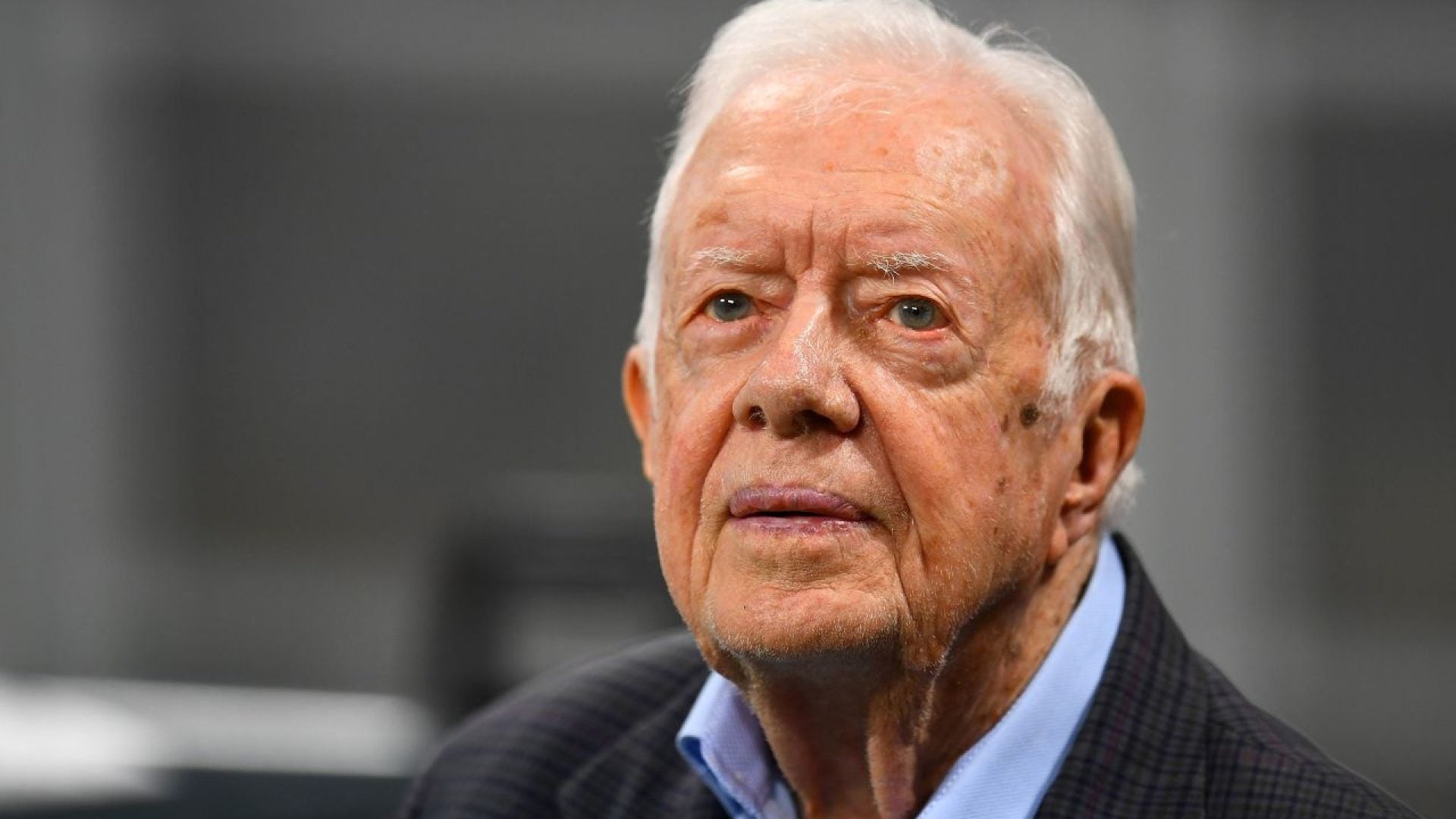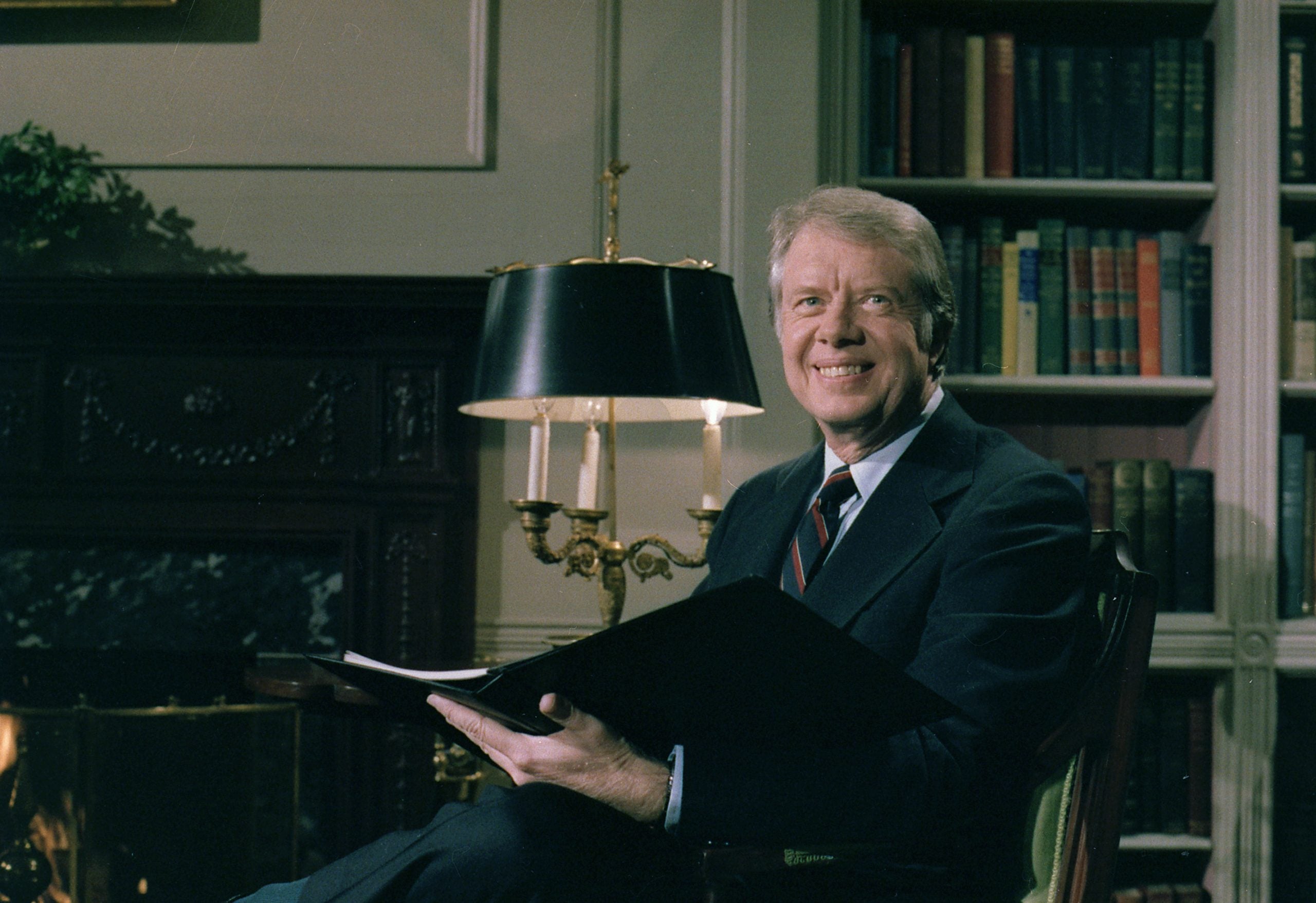
Jimmy Carter, the 39th president of the United States and a global humanitarian, passed away peacefully at the age of 100 in his hometown of Plains, Georgia, where he spent the majority of his life. The Carter Center announced his death on Sunday, nearly two years after he entered hospice care.
“Our founder, former U.S. President Jimmy Carter, passed away this afternoon in Plains, Georgia,” the Carter Center shared on social media. “He died peacefully, surrounded by his family.”
President Carter is survived by his children—Jack, Chip, Jeff, and Amy—along with 11 grandchildren and 14 great-grandchildren. He was preceded in death by his beloved wife of 77 years, Rosalynn, who died in 2023 and one grandchild.
Carter, who served as president from 1977 to 1981, is remembered not only for his time in the Oval Office but for the extraordinary life he led afterward. From conducting diplomatic missions well into his 80s to building homes with Habitat for Humanity into his 90s, Carter exemplified a lifelong commitment to service.
“My faith demands — this is not optional — my faith demands that I do whatever I can, wherever I am, whenever I can, for as long as I can, with whatever I have to try to make a difference,” Carter once said.

His relentless dedication to human rights earned him the Nobel Peace Prize in 2002. Through the Carter Center, which he founded in 1982 alongside his wife Rosalynn, Carter worked to promote democracy, monitor elections, and fight for social justice worldwide.
President Joe Biden was among the first to pay tribute, calling Carter an “extraordinary leader, statesman, and humanitarian.” Reflecting on their decades-long friendship, Biden described Carter’s life as a guide for anyone seeking purpose.
“To all of the young people in this nation and for anyone in search of what it means to live a life of purpose and meaning — the good life — study Jimmy Carter, a man of principle, faith, and humility,” Biden said in a statement.
Former President Barack Obama also honored Carter’s legacy, highlighting his integrity and lifelong commitment to service.
“Elected in the shadow of Watergate, Jimmy Carter promised voters that he would always tell the truth. And he did — advocating for the public good, consequences be damned,” Obama said. “He believed some things were more important than reelection — things like integrity, respect, and compassion.”
Obama added, “Whenever I had a chance to spend time with President Carter, it was clear that he didn’t just profess these values. He embodied them. And in doing so, he taught all of us what it means to live a life of grace, dignity, justice, and service.”
Condolences poured in from leaders around the world, including UN Secretary General Antonio Guterres, Barbados Prime Minister Mia Mottley, British Prime Minister Keir Starmer, and Panamanian President José Raúl Mulino.
Born on October 1, 1924, in Plains, Georgia, James “Jimmy” Earl Carter Jr. was the first U.S. president to be born in a hospital. His upbringing on a peanut farm instilled in him a strong work ethic and a deep sense of values that shaped his presidency and his life beyond.
During his presidency, Carter achieved significant milestones, including brokering the Camp David Accords, which paved the way for peace between Egypt and Israel. Yet his term was also marked by challenges, such as the Iran hostage crisis, which overshadowed his re-election bid in 1980.
After leaving office at just 56, Carter redefined the role of a former president. Often called “America’s greatest ex-president,” he devoted more than four decades to causes that transcended politics, earning admiration across the globe.
President Biden has announced plans for an official state funeral in Washington and declared January 9 a national day of mourning to honor Carter’s remarkable life and legacy.